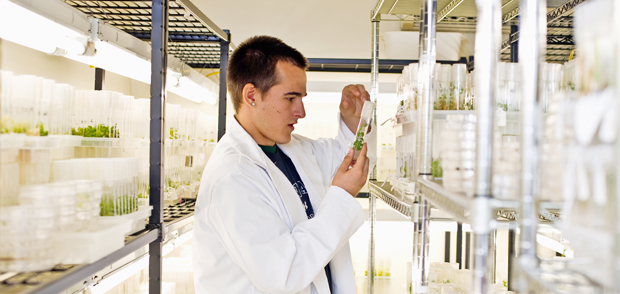
University of Hawaiʻi researchers, faculty and students will participate in a broad range of initiatives related to the International Union for Conservation of Nature (IUCN) World Conservation Congress (WCC), September 1–10. More than 8,700 officials and experts are expected to attend from around the world.
Two UH programs are full voting members of the IUCN: the William S. Richardson School of Law Environmental Law Program and Lyon Arboretum. In addition to actively participating at the IUCN Member’s Assembly, these programs play a major role in many varied conservation efforts across the islands and the Pacific.
- Related UH News video: New Lyon Arboretum laboratory will expand Hawaiian plant conservation
- Related UH News story: Law school prepares for global IUCN congress
“WCC is bringing the world of conservation to our doorstep,” said UH President David Lassner. “Not only can we share the amazing work of our students and faculty with the world, but this is an unparalleled opportunity to learn from others as we develop and strengthen partnerships and relationships with the global of conservation and sustainability community.”
On August 31, President Obama will be at the East-West Center on the UH Mānoa campus to talk with Pacific leaders and select conservationists, where he is expected to address the expansion of the Papahānaumokuākea Marine National Monument. The creation of the world’s largest marine sanctuary was supported by leading UH scientists and coral reef specialists such as Robert Richmond and Ruth Gates.
- Related UH News videos: Coral reef experts bridge science to public policy and Coral reef resiliency research draws high-profile investments
Diverse involvement in conservation efforts
UH’s other involvement and initiatives during the IUCN–WCC include:
- Highlighting UH’s commitment to become net-zero with respect to energy use, producing as much (renewable) energy as the system consumes across all 10 campuses by January 1, 2035
- Localizing the Sustainable Development Goals roundtable discussion: Engaging indigenous peoples and local communities (UH Mānoa Hawaiʻinuiākea School of Hawaiian Knowledge)
- Living shorelines on Tropical Islands workshop: Creating and maintaining healthy coastal systems and improving community resilience in the face of climate change (UH Mānoa School of Ocean and Earth Science and Technology)
- Knowledge Café: Developing pilina with place through Kilo, environmental observations, and interpretation of Hawaiian place names, Wahi Pana (UH Hilo)
- The Role of Agroecology and Indigenous Science in (Re)Developing a Sustainable Community Food System for Hawaiʻi workshop (UH West Oʻahu)
- Managing Terrestrial Agricultural Ecosystems for Climate Change Mitigation and Adaption workshop (UH Mānoa)
- Hawaiian Fishponds workshop (Windward CC)
- Introduction to the Biology and Ecology of Coral Reefs workshop (Windward CC)
- Environment and Ecology workshop (Windward CC)
- Plant Extinction Prevention Program Model: Partnering for Effective Conservation on Oceanic Islands workshop (UH Mānoa)
- World Commission on Environmental Law Programming one-day event (UH Mānoa law school)
- Workshop on the feasibility of a model mosquito eradication project for areas prone to mosquito-borne disease (UH Mānoa and UH Hilo)
- Kūʻula Integrated Science students presenting a chant and hula describing human relationships with the ocean and coral reefs to open the Marine World Heritage Reception (UH Hilo)
- UH Mānoa students are serving as interns for the IUCN Global Gender Office; others are serving as general volunteers at the Hawaiʻi Convention Center
- UH Mānoa communications students are working with the IUCN Global Communications team to develop original media content and assist with social media during the Congress
- Undergraduate and high school students who earned IUCN Summer Certificates at UH Mānoa Outreach College received free passes to attend the Congress
- High school students taking college science courses at Windward CC created for the IUCN will host a one-day huakaʻi in the Koʻolaupoko region
UH is also planning two announcements of major upcoming projects related to sustainability.
Held every four years, the WCC brings together leaders from government, the public sector, non-governmental organizations, business, United Nation agencies and indigenous and grass-roots organizations to discuss and decide on solutions to the world’s most pressing environment and development challenges. WCC 2016 in Hawaiʻi is the first time the Congress is meeting in the United States.

